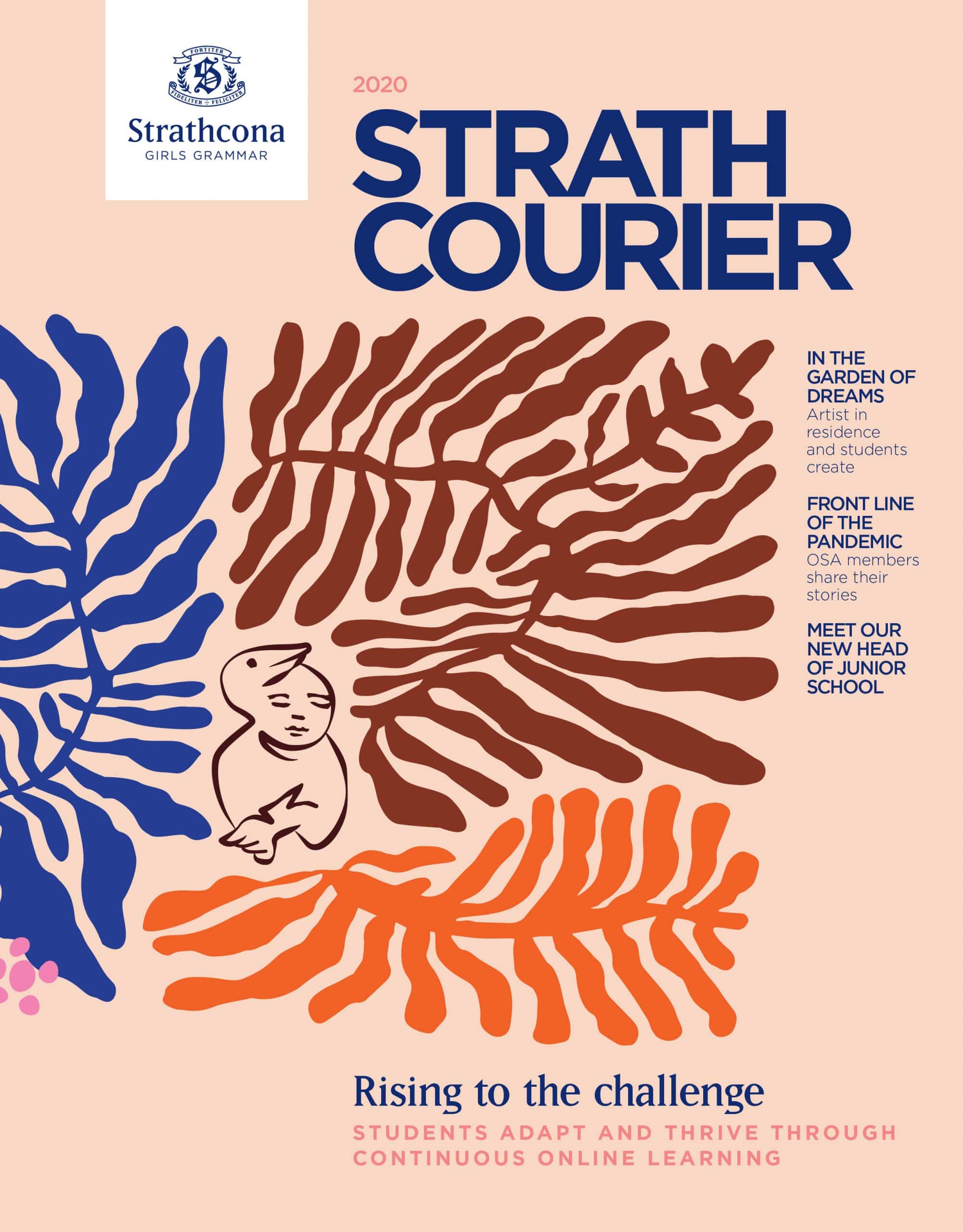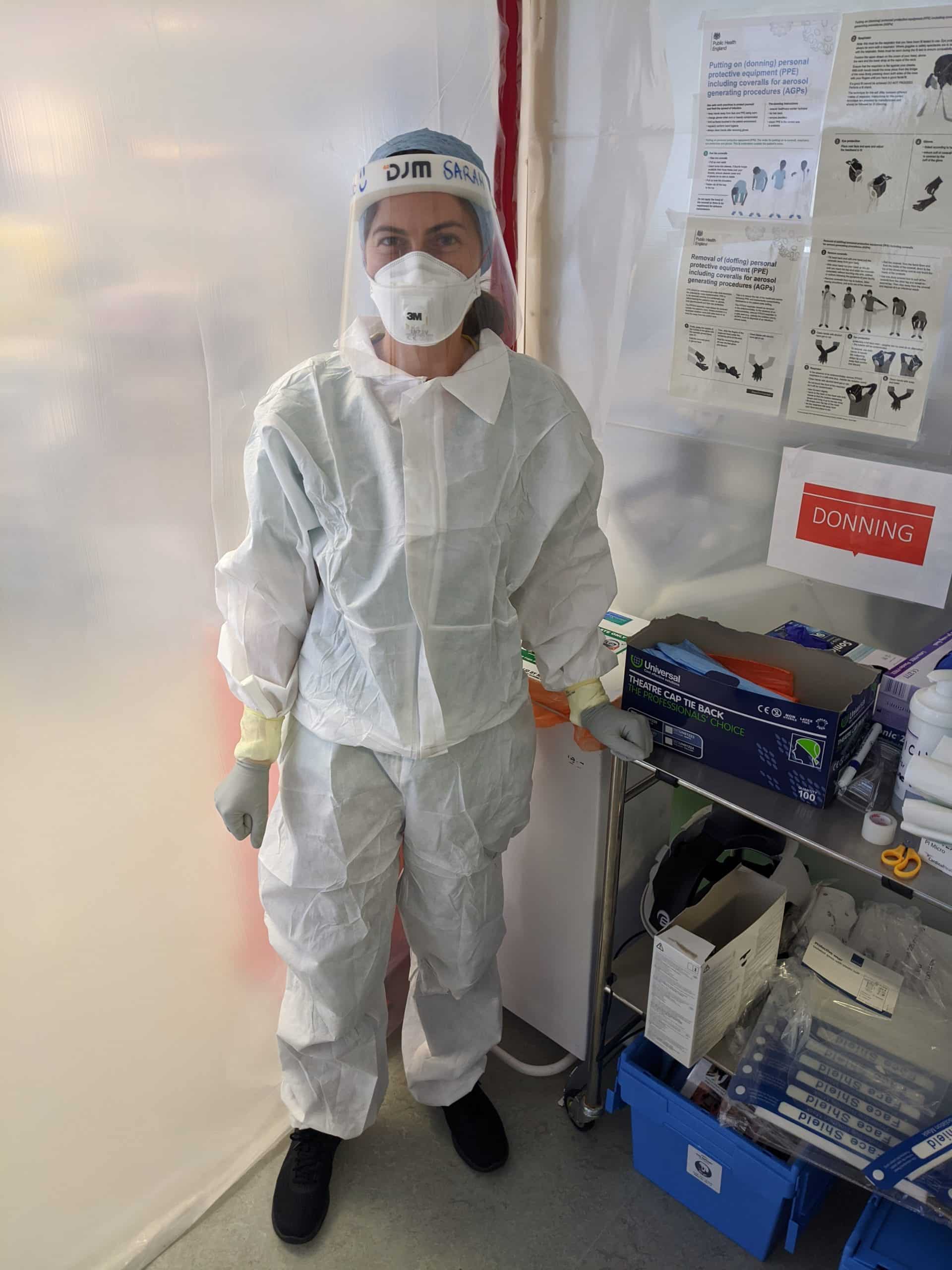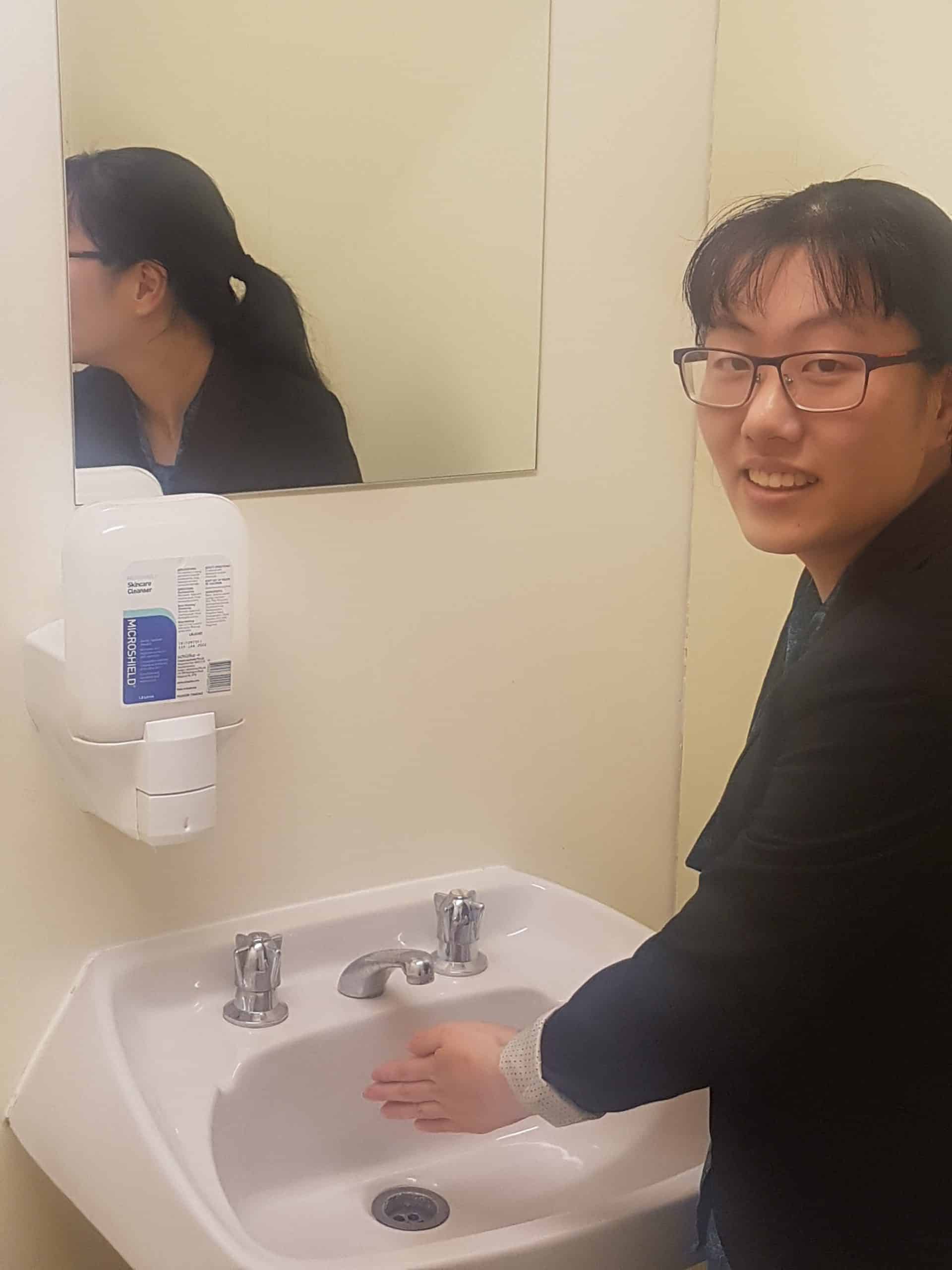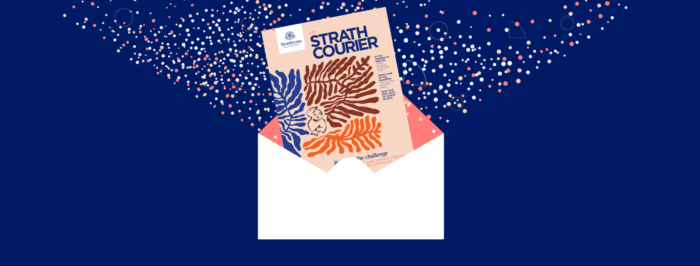Out this Spring is the 2020 edition of the Strathcourier. Within its pages are stories of student journies and academic awards, community strength, and alumnae triumph.
Here is part of one of the articles.
The Front Line of our Pandemic
During the first few months of the pandemic we caught up (virtually) with a few of alumnae who work on the health services frontline. The four share their experiences of working in an unknown and fast-changing world scenario.


Sarah Miller (’08)
University of Melbourne – Doctor of Physiotherapy (2013-2015)
University of Louisville Bachelor’s Degree, Science Major; Business Adminstration Minor (2009-2012)
Sarah is King’s College Hospital National Health Services (NHS) Foundation Trust Team Lead, a respiratory specialist during the COVID-⁄· pandemic as Team Lead to trust wide response whilst simultaneously completing an operations internship.
A modern-day war, well at least that’s what it felt like when all of this kicked off. As a physiotherapist in a London hospital, and currently with “the NHS”, we act as one piece of
the puzzle alongside many of our healthcare peers. We each play a role in managing the recovery for our patients. Most people know physiotherapists to work in a private practice clinic, supporting elite athletes or everyday warriors, however life in a hospital is a completely different ball game.


As a respiratory physiotherapist, the management of COVID-19 is my core business, and I spend most of my day in direct contact with COVID-19 patients. Respiratory physiotherapists help you to breathe better. This means working with doctors and nurses to optimise or
progress the settings on life support machines, various techniques to clear lungs and exercises to control breathing. In critical care, if you are on a life support machine for a long time, you may require an artificial airway to progress your recovery off the machine. This allows you to talk and cough independently as you begin to wake up from being on life support, and so we work with the speech pathologists to manage this process.
I also support the physical recovery, which is particularly important for COVID-19 patients who can spend around a month on a life support machine. Rehabilitation starts
in critical care, so for both your breathing and deconditioning, even if you are on the life support machine, we get you moving. As you improve and move out of critical care and
into a ward environment, there may be a number of issues that impact your recovery, and thus we work with various members of the team to support your return to normal life.
Finally, potentially the largest part of my role in the management of COVID-19 has been to support not only the physiotherapy department, but also our wider hospital team as
a Clinical Educator — an incredibly rewarding experience. but in some ways no different to our regular day jobs in healthcare. A big part of my positive COVID-19 experience is testament to the people at Kings College Hospital. Being an asthmatic, sometimes I feel like I am walking into a death trap but I am motivated by knowing that at Kings survivors due to the wonderful team I work with. It is so satisfying to see your patients discharged and reunited with their loved ones, some after weeks on life support.
The support I have received from friends around the world means a lot (with a special shout out to my Strathy ladies from Melbourne). Thank you! And my final message — thank you for staying home. You’re not only helping to protect you and your loved ones, but also helping us on the frontline to do the best job that we can in this modern day war.
Dr Vanessa Wong (’10)
DOCTOR/PHYSICIAN TRAINEE
Graduated from Bachelor of Medicine/
Bachelor of Surgery/Bachelor of Medical
Science (Hons) at Monash University in 2016.
Vanessa is now working at Eastern Health.
Every day all of us make hundreds of decisions. Even where we buy lunch, commute and have contact with others. COVID19· has focussed our attention on how this affects us and other people.


As a medical registrar, my job has always involved deciding if the patient described on the other end of the telephone call needs a hospital bed or whether they would be safer at home. My job has not fundamentally changed. I am there to comfort and reassure, to offer advice and support and to make treatment decisions.
Right now I feel sadness and grief for all the innocent people and health workers whose lives have been lost. Sometimes guilty, that my current role doesn’t involve direct contact with COVID-19 cases, or that I have the opportunity to leave my house for a valid reason and have contact with others.
I am more grateful for seeing patients present with what seem like “minor” conditions — a back pain or a rash on the leg. Yet my job reminds me why I do what I do in the first place — the fact that I love to find the best possible solution, working seamlessly with my professional colleagues to make a palpable difference to someone’s life.
I am somewhat conflicted about healthcare workers being referred to as heroes. On one hand, these are some seriously underappreciated women—the majority of hospital doctors, nurses, therapists and cleaners—who are finally being recognised appropriately by broader society. However, I am just here to do my job, the vocation I chose when I made the Declaration of Geneva years ago during my medical graduation, when I pledged to dedicate my life to the service of humanity, and which has been largely unaffected by outside circumstances. We are the last lines, the ones who try to help those who have already fallen ill.
However, the real responsibility to halt the spread lies with every individual, to stay at home. People who are sacrificing their jobs, juggling full-time work while looking after their children who are no longer at school, people who never chose or imagined this path. Their names and faces will never be seen or remembered, yet they are the real frontline heroes.
Together, we have all faced an extraordinary challenge.


